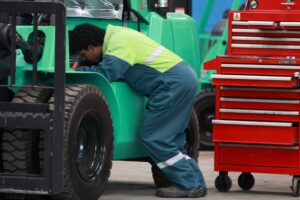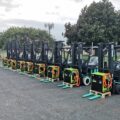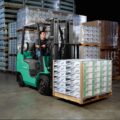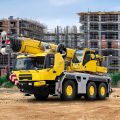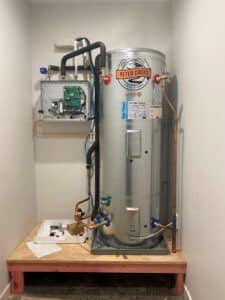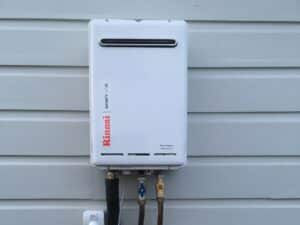With many options available in the market, understanding your specific needs and the types of forklifts suitable for your operations is essential for making an informed decision. This article aims to guide you through the process of selecting the right forklift for sale in Auckland, ensuring you consider all relevant factors.
Selecting the right forklift for your business is crucial for ensuring operational efficiency and safety. In a bustling industrial hub like Auckland, where various sectors such as warehousing, construction, and retail thrive, the choice of forklift can significantly impact productivity.
Identifying Your Forklift Needs
Assessing Business Operations
The first step in selecting the right forklift is to assess your business operations. Different sectors in Auckland have distinct requirements when it comes to forklifts:
- Warehousing: In warehouses, forklifts are typically used for moving pallets and heavy goods. They often require forklifts with a high lifting capacity and features for narrow aisle navigation.
- Construction: Construction sites demand robust forklifts capable of handling heavy materials, such as steel and concrete blocks. The ability to operate on uneven terrain is also vital.
- Retail: Retail operations, especially those with back-end storage areas, need forklifts that can efficiently manage inventory movement between storage and sales floors.
Understanding the specific type of loads you will handle is equally important. Different materials vary in weight, size, and handling requirements, so knowing these aspects helps in choosing a forklift tailored to your business’s needs.
Determining Frequency and Duration of Use
Next, consider how frequently the forklift will be used and for how long. If your operations require constant use of a forklift, investing in a durable, high-performance model may be wise. On the other hand, if the forklift is only needed occasionally, you might consider renting or purchasing a less expensive model. Operational hours can influence forklift choice significantly; a forklift that runs continuously needs robust components and higher safety ratings.
Environmental Considerations
The environment in which the forklift will operate is a critical factor. Indoor and outdoor forklifts have different specifications:
- Indoor Forklifts: These are typically electric forklifts, designed for smooth surfaces and confined spaces. They emit no fumes, making them ideal for indoor use.
- Outdoor Forklifts: For outdoor environments, particularly in Auckland’s variable climate, you may require forklifts that can withstand wet and slippery conditions. Diesel or LPG forklifts are often better suited for these scenarios due to their power and durability.
Understanding these environmental considerations will guide your selection process when looking for a forklift for sale in Auckland.
Types of Forklifts Available for Sale
Electric Forklifts
Electric forklifts are known for their lower operating costs and reduced emissions, making them environmentally friendly. They are best suited for indoor operations where noise and air quality are concerns. However, they may struggle in outdoor conditions or when handling heavy loads for extended periods.
Diesel Forklifts
Diesel forklifts offer significant advantages, including high power and the ability to handle heavy loads. They are ideal for outdoor applications and can perform well in rough terrain, making them a popular choice for construction sites. However, they do have higher operating costs due to fuel consumption.
LPG Forklifts
LPG forklifts provide flexibility, as they can be used both indoors and outdoors. They balance power and efficiency, making them versatile for various applications. Additionally, they produce fewer emissions than diesel forklifts, which can be an advantage for indoor operations.
Specialty Forklifts
Specialty forklifts, such as reach trucks, order pickers, and narrow aisle forklifts, cater to specific needs. Reach trucks are designed for high stacking, while order pickers allow operators to pick items directly from the shelves. Narrow aisle forklifts are excellent for warehouses with limited space. Understanding these options can help businesses in Auckland find the right forklift for sale in Auckland to meet their specific requirements.
Key Specifications to Evaluate
Lifting Capacity
Determining the necessary lifting capacity is critical when selecting a forklift. Assess the typical loads your business handles, factoring in the weight and dimensions. It’s essential to choose a forklift that can safely handle these loads without exceeding capacity limits to ensure safety and efficiency.
Mast Height and Fork Length
The mast height and fork length also play a significant role in your choice. The mast height should be compatible with your warehouse racking system, allowing for efficient stacking and retrieval of goods. Selecting the appropriate fork lengths for different loads is equally important to ensure safe handling and transport.
Size and Manoeuvrability
Manoeuvrability is another vital consideration. The turning radius and overall size of the forklift affect its ability to navigate tight spaces, particularly in Auckland’s warehouses or retail environments. Assessing space constraints will help ensure that the forklift can operate effectively within your facility.
Cost Considerations
Understanding Pricing Structures
When searching for a forklift for sale in Auckland, understanding pricing structures is essential. Factors such as brand, model, specifications, and whether the forklift is new or used will significantly impact the price. Researching various options will help you find a forklift that fits your budget while meeting your needs.
Rental vs. Purchase Decisions
Evaluating whether to rent or purchase a forklift is another important decision. Renting can be beneficial for businesses with seasonal needs or those requiring flexibility. On the other hand, purchasing may be more cost-effective for operations with continuous forklift needs. Consider your specific circumstances when making this decision.
Long-term Operating Costs
It’s crucial to budget for long-term operating costs associated with maintaining a forklift. This includes fuel, maintenance, insurance, and repairs. Electric forklifts generally have lower operating costs, while diesel models may require more frequent maintenance. Understanding these costs will help ensure you make a financially sound decision.
Safety and Compliance Requirements
Forklift Regulations in New Zealand
Adhering to safety regulations is paramount when operating forklifts. New Zealand has strict regulations governing forklift safety, which include regular inspections, maintenance, and compliance with operational guidelines. Failing to meet these standards can lead to legal issues and potential penalties, making it essential to stay informed and compliant.
Operator Training and Certification
Proper training and certification for forklift operators are critical for safety. Investing in training programs ensures that operators understand safe practices and are skilled in operating the forklift correctly. There are various training providers in Auckland that offer certification courses to meet these requirements.
Evaluating Forklift Dealers in Auckland
Reputable Forklift Dealers
When searching for a forklift for sale in Auckland, it’s essential to work with reputable dealers. Look for dealers with a strong track record, positive customer reviews, and a wide selection of forklifts. A good dealer will also offer after-sales support and maintenance services.
Customer Reviews and Testimonials
Leveraging customer feedback can help assess dealer reliability. Look for reviews and testimonials from previous customers to gauge their experiences. A dealer with consistently positive feedback is more likely to provide a satisfactory purchasing experience.
Warranty and After-Sales Support
When purchasing a forklift, consider the warranty options available. A solid warranty can provide peace of mind and protect your investment. Additionally, ongoing support and service contracts are crucial for ensuring the forklift remains in optimal condition over its lifespan.
Conclusion
Choosing the right forklift for sale in Auckland involves careful consideration of various factors, including business needs, type of forklift, specifications, cost, safety regulations, and dealer reliability.
Taking the time to evaluate these aspects will help you make an informed decision that aligns with your business requirements. Investing in the right forklift can enhance operational efficiency, improve safety, and ultimately contribute to your business’s success.

